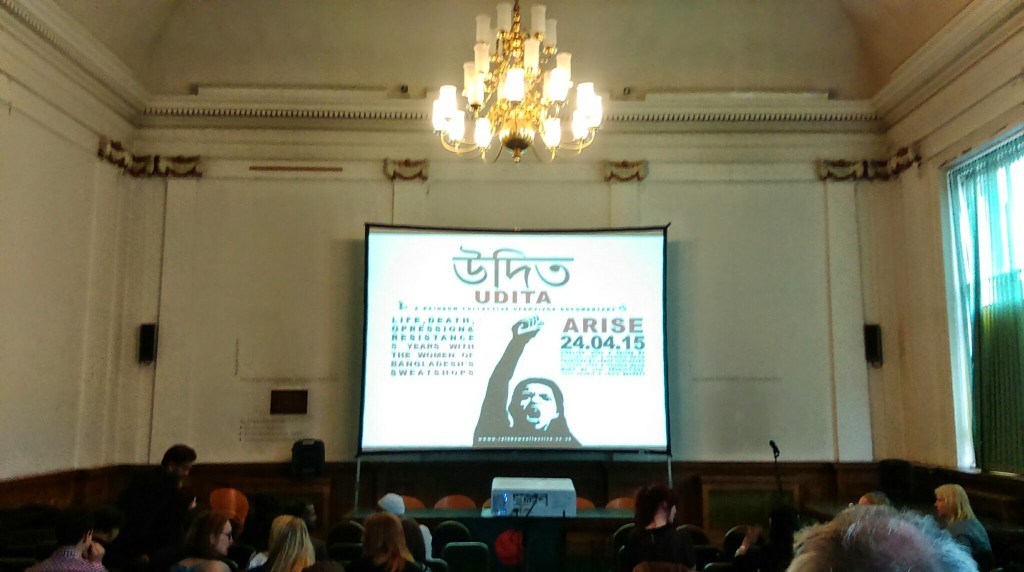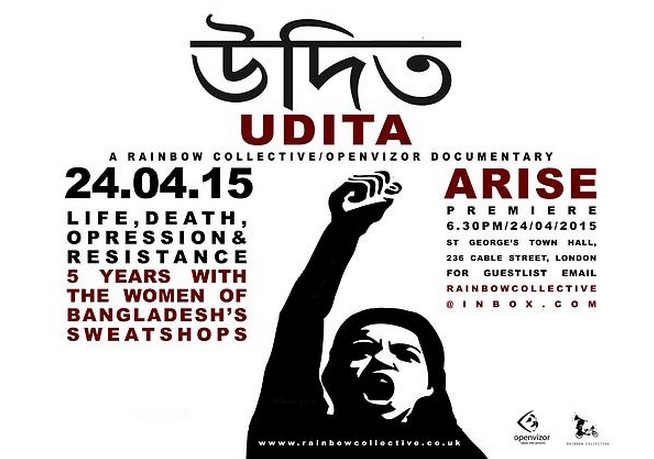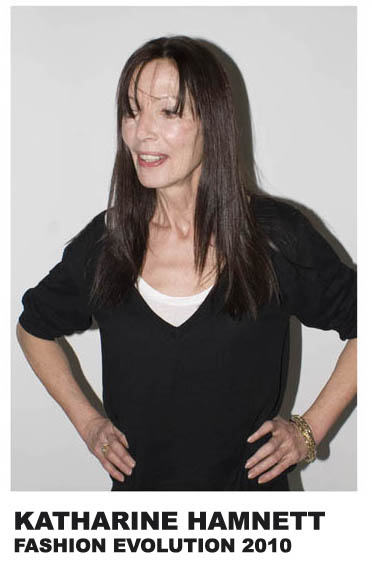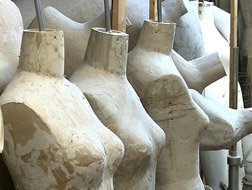On April 24th 2013, the Rana Plaza building collapsed in Bangladesh. Over 1,130 workers were killed and thousands more were left injured. These workers were producing garments for consumers in Europe and North America.
We have now marked the two year anniversary of the collapse, yet the ILO trust fund established to support victims and their families remains nearly 3 million dollars short.
Rana Plaza was not the first industrial accident of its kind in Bangladesh, and building (and fire) safety is not the only challenge faced by garment workers.
Udita, the latest documentary from The Rainbow Collective, brings together footage capturing garment work in Bangladesh, collected over a five year period.
The Rainbow Collective premiered the film in East London at the Unite The Union Community Centre to a packed house on 24 April, marking the 2nd anniversary of the Rana Plaza collapse.
Udita Trailer (full documentary below):

Udita asks its audience to listen to the testimonies of workers and organisers. No simple solution is presented. No judgements are passed. Viewers are left to draw their own connections.
Thanks to The Rainbow Collective for making Udita free and accessible.
Please watch and share through your networks.
Udita (full documentary):
Note: This blog post was also published on Routes blog, with permission.




